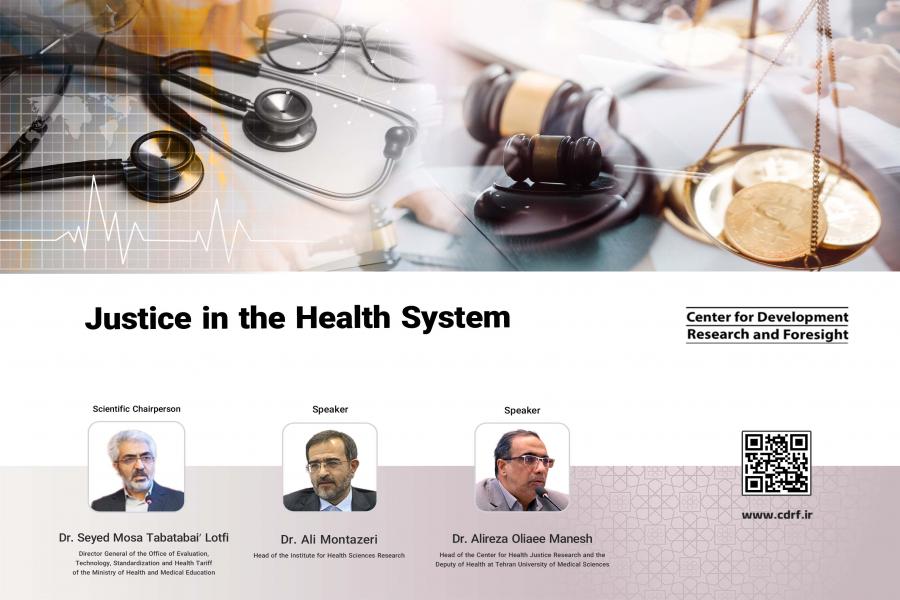
-
بررسی آییننامهها و دستورالعملهای برنامه هفتم پیشرفت
-
بررسی عوامل موثر بر افزایش تصادفات و تلفات جادهای و سوانح رانندگی و دادهکاوی تلفات انسانی
-
سازماندهی و بازآرایی فضایی آموزش عالی کشور
-
به روز رسانی سند ملی آمایش سرزمین
-
انجام مطالعات مناطق آزاد به عنوان نواحی پیشران اقتصادی کشور
-
اصلاح ساختار بودجه و پیاده سازی نظام یکپارچه مدیریت اطلاعات مالی دولت (IFMIS)

In the realm of healthcare, justice signifies equal access to healthcare services for all individuals. Key indicators for evaluating justice in health include justice in distribution, payment, access, and financial provision. Health equality entails implementing policies and allocating resources in a manner that individuals with fewer resources and those facing deprivation and discrimination (due to factors such as race, gender, age, disability, or income) experience significant improvements in their health and quality of life.
A review of resources and studies conducted by national researchers on justice and inequality in healthcare reveals that health inequalities exist among income groups, education levels, genders, and other differentiators across three dimensions of health justice: 1) justice in the financial provision of the healthcare system, 2) justice in access to and utilization of healthcare services, and 3) justice in health outcomes. Therefore, it is crucial to take action across various provinces of the country based on existing evidence.
The following points and recommendations from the scientific-specialized conference of the Center for Development and Foresight Research titled “Justice in the Healthcare System (Implications for the Seventh Development Plan)” are essential to consider:
- Based on surveys conducted and available evidence, it is imperative to address the reduction of injustice in the country’s planning system. In line with the World Health Organization’s slogan, health should be considered in all areas. The term “justice in health” should be used in the Seventh Development Plan.
- The inefficiency of the healthcare system in addressing justice in health has been exposed during emergency situations such as the coronavirus pandemic. The Seventh Development Plan should specifically address this issue and prepare the country for potential future pandemics.
- Government involvement in the public health sector is crucial to prevent injustice. Strengthening public healthcare will prevent people from resorting to private healthcare facilities, which impose high costs on the population.
- Scientific evidence on justice in health should be collected and made accessible to everyone.
- Quantitative targeting should be done based on available evidence to reduce injustice.
- The theoretical knowledge of justice in health should be developed with an emphasis on the One Health approach.
- Health insurance coverage should be significantly increased, moving towards primary healthcare (PHC) and universal health coverage (UHC).
- Services should be directed towards specialized and super-specialized treatment to strengthen justice in health.



